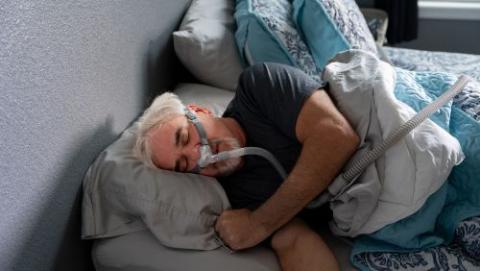
A new study recently published in the medical journal, Sleep, has found a potential link between sleep apnoea and the development of epilepsy in older adults (those who are 60+).
Sleep apnoea is a common condition in which a person’s breathing stops and restarts many times while they sleep. This can prevent their body from getting enough oxygen.
The development of epilepsy in older adults is not uncommon and can often develop as a result of other factors which affect the brain such as a tumor or stroke.
In previous smaller studies, a suggested link between the development of epilepsy and sleep apnoea had been made, but a direct link was not firmly established.
Researchers at Johns Hopkins University in the USA, set about further investigating this link by assessing the sleep data from more than 1,300 participants in a study of sleep-disordered breathing and cardiovascular disease.
They found that people whose oxygen saturation fell below 80% during sleep, a condition known as nocturnal hypoxia, were three times more likely to develop late-onset epilepsy compared to those who did not have similarly low oxygen levels. They also found that participants with self-reported sleep apnoea in later life were twice as likely to develop late-onset epilepsy as those without the sleep disorder.
With one of the key symptoms of Sleep apnoea being exposure to low oxygen levels, the research suggests that continued exposure to low oxygen levels in the brain could bring about changes in the brain that leads a person developing epilepsy.
Commenting on the findings of the research, study author Dr. Christopher Carosella said:
Discovering a reversible cause for the development of any type of idiopathic epilepsy is an aspirational goal for epilepsy researchers or clinician. We hope this study might be a small first step in that direction and also an encouragement to evaluate and treat sleep disorders in patients with epilepsy
The study authors have acknowledged that further research in this area is required, in particular to better understand whether treating sleep apnoea can prevent late-onset epilepsy.
If you would like to read more about this emerging research, you can do so by visiting the ‘Sleep’ website.
We will continue to monitor and report on emerging global epilepsy research and provide further updates on our website.
If you need any information or support on your or your loved one’s journey with epilepsy, please do not hesitate to contact your local Community Resource Officer. You can find their details by visiting the ‘Our Services’ section of our website.
